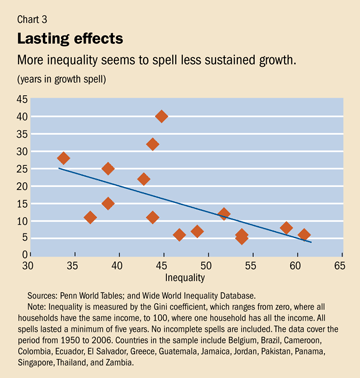 Andrew Sullivan is well known as the Catholic Republican who, because of his personal experiences, took on causes that were unpopular with other conservatives and thereby made himself somewhat of a cause celebre among American progressives. He deserves praise for the courage of standing against his tribe on principle, and he’s also a great writer. Nonetheless, I am always wary of his arguments, as they often derive from old-school, small-c conservative commitments to fundamental human fallibility, the resulting necessity of centralized authority and hierarchy, and a suspicion of anything too new. I think in his recent and widely-shared piece on the meaning of Donald Trump, this conservative reading of his sources has gotten the better of him.
Andrew Sullivan is well known as the Catholic Republican who, because of his personal experiences, took on causes that were unpopular with other conservatives and thereby made himself somewhat of a cause celebre among American progressives. He deserves praise for the courage of standing against his tribe on principle, and he’s also a great writer. Nonetheless, I am always wary of his arguments, as they often derive from old-school, small-c conservative commitments to fundamental human fallibility, the resulting necessity of centralized authority and hierarchy, and a suspicion of anything too new. I think in his recent and widely-shared piece on the meaning of Donald Trump, this conservative reading of his sources has gotten the better of him.
The picture of America Sullivan draws has little to do with democracy as we know it (and reads selectively from Plato, to boot). At best, it describes the cultural commitments of an increasingly narrow slice of liberal middle class America; at worst, only the nightmarish fantasies of its opponents. What is America actually suffering from? The bottom half of earners are doing worse now than in the mid 1970. Black people are worse off than they were back then, too, and are incarcerated at 4-5 times more than they used to be. Wages are stagnant, the distribution of wealth is unthinkably uneven and those who were responsible for the financial calamity that led to dispossession and despair were never held to account–“no banker went to jail” as they say.
If their diagnoses differ, it is clear that Occupy Wall Street and the Tea Party, along with the supporters of both Bernie and Trump, have been inspired by a deep sense of injustice about the distribution of power and wealth in American society. And in that sense of injustice, they are right.
To describe America’s problem as a surfeit of democracy is thus to bend the meaning of the word to its breaking point. The influence of money on American politics, both before and after Citizens United, has corrupted the ideal (and here I steal from Larry Lessig) of a republic for, by and of the people. The centrality of wealth to the American political system, given the massive inequality of wealth, renders the system a loose oligarchy. The problem is not, per Sullivan, the democratic licentiousness of the populace. The problem is in the democratic deficit of the political sphere.
You might say that money doesn’t matter, because the candidates who win aren’t the ones who get the most money. This ignores the question of what the field of candidates would look like, and what sorts of policies they would be promoting, if the whole process wasn’t awash in cash. Congress spends 2/3 of its time fundraising. Water doesn’t determine which fish will win in a race, but it’s still pretty important to the outcome.
Sullivan’s version of America’s problem requires him to recount a just-so-story about the rise of Trump that is neither credible in structure nor a good fit to the actual history. If his reading of Plato is right, then after the elites have been toppled, his story goes, a dictator arises by exploiting antipathy and distrust of the elites. But if the elites have been toppled, where is the political benefit in challenging them? Is it not a more believable hypothesis, given the evidence, that Americans are raging against elite corruption because there has in fact been a centralization of power, and a disproportionate allocation of benefits, to a narrow few? Beyond whether his parable makes sense on its face, there is the problem that he can fit Plato’s narrative about the slide from democracy to tyranny to the American case only by imagining that political systems somehow develop according to some evolutionary logic of ideal types. And that means letting the actual political actors off the hook.
As many have argued, Trump’s ascendance is hardly without precursors in the American political discourse. Trump is the harvest of what the Republican party has sowed: exploitation of racial difference for political gain? a disdain for any principle that stands in the way of electoral advantage? a willingness to sacrifice substance for rhetorical splash? Has Sullivan not heard of Karl Rove? But the Democractic party doesn’t get off scot-free, either. As well-documented by this excellent historical review in nplusone, Bill Clinton’s victory in the 1990s was rooted in his party’s turn away from labour, the middle class and the poor, expressed most clearly in the party’s simultaneous deification of free trade and its denial of trade’s distributive costs. Economists like to make great hay of the overall gains that can be made from open trade, and depending on where you are standing, the big numbers do go up slightly. But the size of those numbers don’t do much for Flint, Michigan. For the last twenty-five years, the Democratic party as much as the Republican has been perfectly willing to embrace a policy that enriches the country at the expense of the working class, while blaming the working class for their resulting unemployment and penury, and actually making life harder for those who find themselves out of work.
Trump is certainly wrong to place the blame for any of this on China, Mexico, the Muslims. And in his diagnosis of America’s ills, in his prescriptions to overcome them and in his campaign methods, he’s not only wrong, but dangerous. But his popularity lies not only in the novelty of his scapegoating, but in being one of two candidates in this election who has refused to look at the struggle of America’s popular classes, and place the blame back on them.
America’s problem isn’t that there is too much democracy, but that there is too little. And the rise of Bernie Sanders, Occupy–even the Tea Party–suggests that Americans may be ready to re-balance the ledger. We don’t need Plato’s cynicism to see that clearly.
 Earlier this year, a couple of high-level staff at the IMF’s research department and a colleague at the IBRD published
Earlier this year, a couple of high-level staff at the IMF’s research department and a colleague at the IBRD published 